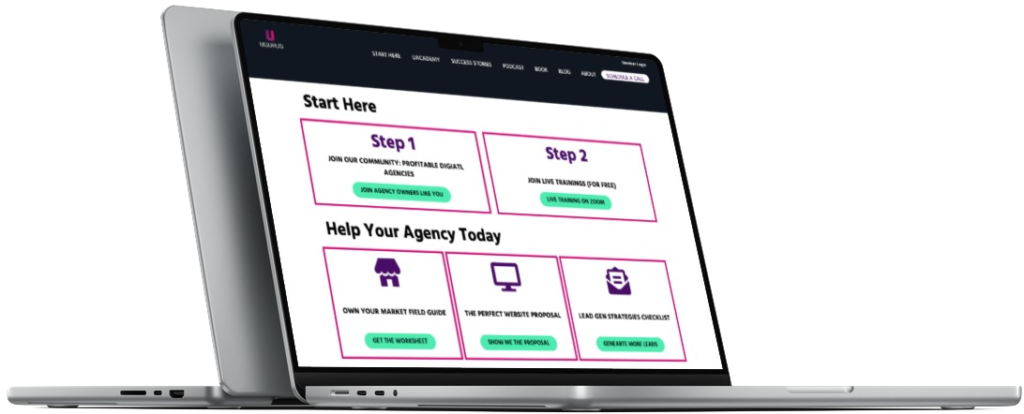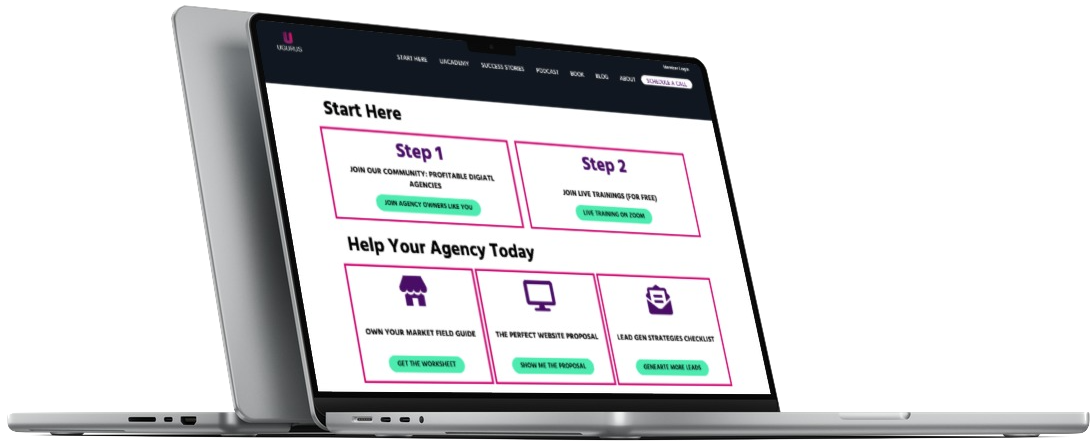Every so often I get asked a very important question:
“Brent, is the web dead? Should I even be considering a career in web design, development, or online marketing?”
My first thought is to wonder where this question originates from. Why would anyone think that the web is dying?
More Options
Websites aren’t the only “online” option to market businesses anymore. There’s Facebook, Twitter, Pinterest, Custom Apps, Yelp, and many other services that provide “listings” for businesses. Several people have told me over the last five years that companies are going to forego websites and just use their Facebook Fan Page.
The untrained internet commentator might truly believe this is a valid option. However, you don’t own Facebook. You don’t own your profile, your Fan Page, your followers, or any of the data that goes with it. A Fan Page might be a great avenue to help drive traffic to your website and interact with fans, but Fan Pages could dramatically change over the next decade. And there’s nothing you can do about it. The same goes for every other 3rd party property.
Businesses want to build the assets they own. Facebook, Twitter, Yelp, Pinterest, and so on, are great platforms on which to build your brand and awareness, but eventually you need that user to hit your website, and sign up for your email list.
More Competition
The barrier to enter web design, development, and online marketing is extremely low. I used to think that all you needed was an internet connection and a laptop. Now I’m pretty certain you could get by with a shared computer at a public library (because so much of web production can happen in the browser). There are fantastic technical training programs for less than a dollar a day.
I was sitting outside my office yesterday talking to the guy that picks up our trash dumpster. He asked what I did and I told him a little about uGurus. He asked me, “what kind of business could I start with little to no up front money.” My answer, “web design.” I told him that it wouldn’t be easy, that he would have to learn a lot, but it could be done for little to no out of pocket money, as long as he was willing to invest the time.
Even more important, I also told him that he probably already knew a few potential clients. Chances are that he has a close friend or family member that has a business and is in need of his services (even though he doesn’t even do them yet). I told him that before he invests the time in learning the craft that he should go find his first client.
More DIY
There are more Do-It-Yourself tools available today than ever. And if I had to guess, what we see on the market today is only a smidgen of the tools on the way. Browser-based website builders, templates, frameworks, and stock content are plentiful. There are also tons of free to inexpensive website platforms.
However, more tools and technologies don’t help the business owner. Every entrepreneur I talk to needs more time. They don’t need more technologies to invest more time in, they need a professional to do it for them. They need a pro to use the ever growing number of tools and technologies to build faster, better, and cheaper, so they can move on to the important step: getting more customers.
The moment that web design became easy enough for the inexperienced to do it was the same moment that mobile and tablet exploded and made web a little harder and a little more out of reach to the untrained. Mobile is exploding. Once we get comfortable with the mobile web, someone’s going to invent the cerebral web. I have no idea what that is, but it’s coming.
The Internet Has Just Scratched the Surface
Since 2000, the number of users on the Internet has gone from 360 million to 2.4 billion (data current to June 2012). Remember that whole “dot com bubble”? When the internet supposedly “burst,” the total number of customers online was less than 15% of what it is today. The bubble was just a bunch of companies that IPO’d during a run up and failed during early adoption of the internet.
But the internet is getting more mature. There are more proven business models, more capital, and so much more traffic.
It is no longer an option for a business to have a website. It’s a requirement. The first thing that any newly minted entrepreneur thinks is, “I need a website.”
The demand for web professionals is greater than ever before. Sure, you probably can’t build a five page brochure for $50,000 like you could in 1999, but that doesn’t mean you can’t make $150+ per hour without a college degree (or high school diploma for that matter). I know virtual agency owners that are netting more than $500 per hour between their high hourly rates, recurring revenue streams, and leveraged contract rates.
I don’t know a single web professional that has stuck with their business for at least five years that isn’t undergoing massive growth right now. Companies that I talked to three years ago that were just breaking $100k are now sliding past half a million. Companies that were at half a million are approaching a million in yearly revenue. And those that were already at a million are seeing what it feels like to make multiple millions in a year.
Businesses Cycle and Websites Need Upgrading
Not every business that starts today will be around in five years. But that doesn’t mean the founders disappear. They’ll undoubtedly start another business, which will need another website, email template, strategy designed, and campaign executed.
But that’s just the failures. A lot of our business was driven from clients that were serial successes. Restaurateurs that already had a concept and were opening another. These clients launched new projects every couple of years. As long as we kept delivering a great product, they were happy to keep shelling out cash for their next venture.
Designs inevitably go out of date. Whether it’s the style, or the technology that changes, refreshes are in order. When mobile became prevalent, we had a lot of work to do. Not only did it expand the scope of all of our new builds, but it gave us a sweet opportunity to go back to our entire client base and sell them on the fruits of multi-screen.
Web is a Gateway Drug
Once you learn how to effectively build websites for businesses, additional opportunities will open up. You can either specialize in a technology or method and become the go-to operator for that thing, or you can widen the scope of services you offer.
My focus was on the small business owner (SBO). I wanted to be their Online Business Partner. Basically, anything that happened on the internet for that SBO, I wanted to be the company that provided it. Website, check. Mobile, check. Online ads, check. Search, check. Social, check. Business owners usually don’t want to have ten different contractors for all that stuff. I capitalized on that and built a business around it.
But you can take a single idea, like UI/UX or WordPress, and focus your entire business on that. You can simply focus on that single part of the process in projects, while partnering with other web and software firms that do everything else.
If you can’t build websites, neither specialist or generalist business models will get you very far.
But You Sold Out
I sold my web agency last year to pursue a vision of helping web professionals build wildly successful businesses. For me, I had to focus on developing a product company. I was doing product and service at the same time, and it was a conflicting model for me. I needed to focus on one or the other.
But that doesn’t mean that I don’t think web isn’t extremely profitable. I was making good money, and it was getting even better as time went on. I built websites and online businesses for thirteen years. When I founded my company in 1999, I had no vision, no idea where it would take me.
At first it was just some extra spending money while in college. Then it paid my rent. Then I had employees. Eventually I had hundreds of clients all around the globe and there was a successful enterprise under my feet.
And it was through building that enterprise that I found a passion. I love to educate people and spread knowledge that can change their lives. So now I have taken everything I learned from building a website business and am now building a technology startup. There is no way I could be doing what I am doing now if I hadn’t had the massive base of knowledge from building my agency.
I see the web in higher demand than ever before. That’s why I moved upstream. I want to take advantage of even more value being created in the world around the Internet.
So is the web dead?
Far from it. The web is thriving.
GET YOUR FREE AGENCY ACCELERATOR PACKAGE





